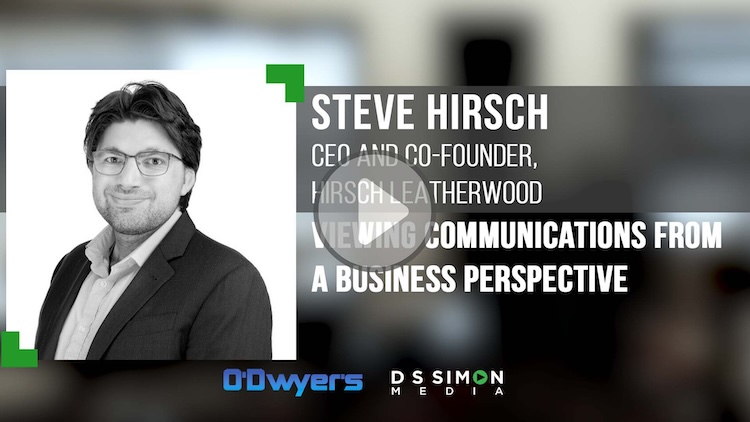 |
| Bob Brody |
As we barge into 2022, the list of words that are overused, especially in public relations, grows longer by the day. Curated. Bespoke. Reimagined. Zoom as a verb. But none gets under my skin more than the ubiquitous buzzword "content."
I evidently grew up under a misapprehension about what the word "content" meant. I believed "content" to be more or less whatever came in a package, the stuff inside. Our local mailman would deliver boxes often designated "Contents Fragile" or "Contents This Side Up." Most dictionaries define the noun "content" as "something contained."
So it went through history. We automatically came to expect the word "contents" to refer to any items, materials or substances that could be found in jars, pants pockets, a safe, desk drawers, refrigerators, garbage bins or, for that matter, your stomach or your bellybutton. Similarly, a movie might contain adult content, just as a food label indicated salt content.
But no longer does traditional usage suffice. Nowadays, "content" is a catch-all term, deployed at will to mean literally almost anything – and, as such, also nothing – provided it contains something. Music. Podcasts, TV streaming services. University curricula. Museum exhibitions. Its influence has infiltrated our cultural bloodstream as a toxin.
Content, we're often reminded, is officially king. Suddenly now almost everyone – YouTube influencers, TikTok stars, fake-news pundits – qualifies as a content "creator." Content agencies churn out branded and sponsored content. Operations called content farms have sprung into being. LinkedIn is overrun with specialists in content marketing and content management who aggregate – and of course curate – all the ever-cascading content.
I mean, come on. Check out, for example, how many non-media companies have only in the last decade or so hired chief content officers: Goldman Sachs, Burberry, Peloton and Dun & Bradstreet, just for starters (the average salary, by the way, runs about 300k, according to GlassDoor).
Now go ahead and ask the Content Marketing Institute what a chief content officer actually does. The answer: "oversees all marketing content initiatives, both internal and external, across multiple platforms and formats to drive sales, engagement, retention, leads, and positive customer behavior."
Well, okay. If you say so.
Let me clarify here. I'm most offended seeing the word "content" increasingly used as a label for what I've always regarded simply as writing. Yet some writers, in an effort to stay current, now resort to calling themselves, content strategists. No wonder: the Robert Half staffing company says such species are in high demand.
Okay, so maybe as a writer and PR professional, I'm prejudiced against such misnomers. But in all the years I've cranked out my manuscripts, my copy, my texts, whether for a client a newspaper, a website or a Fortune 500 corporation, never has an editor requested, nor have I ever offered, anything called merely "content."
If you're a writer, please call yourself a writer and your writing, writing. If you've produced a blog post, please feel compelled in the name of decency, not to mention authenticity, to call it a blog post.
Linguists are always quick to remind us, usually with wagging finger, that word meanings change, that language evolves and mutates. We should go with the flow, they scold. But I say substituting the word "content" for the written word devalues writing itself. All too often, "content" is a synonym for filler, stuff created mainly to take up space, fodder to plug up black holes in the universe. But music, movies, novels and college courses deserve to be considered more than just furniture for a room. Is "The Odyssey" mere content? Is "Citizen Kane?" The score for "West Side Story?"
I blame the Internet. Websites created a craving for so-called content. The culprits behind this misdeed are the programmers who applied the word "content" to everything marketed, and merchandised, and otherwise commodified online. Content is inherently transactional. It plays into analytics and algorithms, to the growing demand to quantify every object in its path for the sake of search engine optimization. It's designed not necessarily to educate or otherwise illuminate, but, rather, to generate "likes," page views, shares and, best of all, subscribers.
Most "content" is noise signifying little or nothing. But banning the noun "content" from further corruption is already a lost cause. We should instead just minimize its use.
Luckily, some promising reforms may already be underway. PayPal, much to its credit, recently announced eliminating the word "content" from its vocabulary. Even so, its replacement is "brandcurrency."
Seriously?
Clearly, then, we all still have our work cut out for us. The overarching irony here is how much of the "content" cranked out day after day actually winds up being neither filler nor fodder but, in fact, empty. Let's get back to business. Let's stick with words that still carry that elusive quality known as meaning.
***
Bob Brody, a corporate, editorial consultant and personal essayist now living in Italy, is the author of "Playing Catch with Strangers: A Family Guy (Reluctantly) Comes of Age." He contributes to The New York Times, The Washington Post and The Wall Street Journal, among other publications.










 Have a comment? Send it to
Have a comment? Send it to 
Mar. 21, 2022, by Bill Huey
Bravo, Bob Brody. Having taught writing at several universities in their so-called schools of communication, I suspect the position is called “content strategist” because either they can’t write or what they produce cannot be called writing. We have become a far less literate—or far more semi-literate—society because of television, social media, and a general decline in standards for clarity and precision in writing. As one of John Le Carre’s characters put it: “show me someone who can’t write straight and I’ll show you someone who can’t think straight.”
Bill Huey